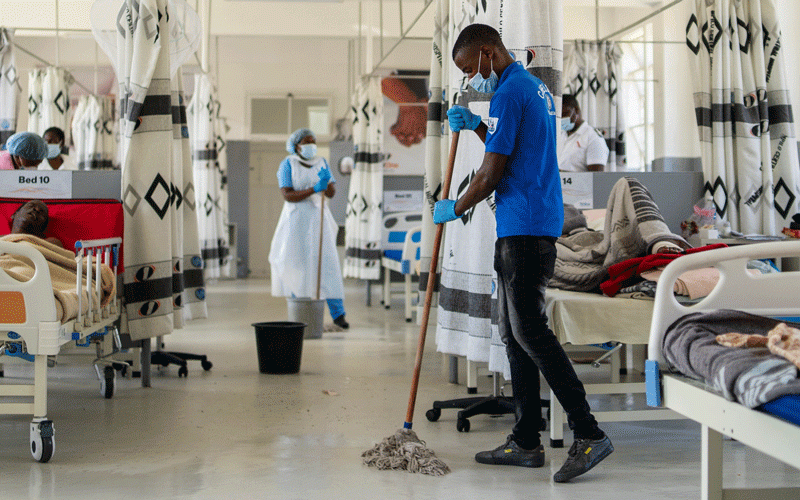
OFFICIALS in Zimbabwe’s stuttering health delivery system yesterday warned of grave consequences to patients on life support in hospitals, as rolling power blackouts mount.
Their fears were also shared by health rights campaigners, who told the Zimbabwe Independent that constitutional rights had been violated as blackouts stifled access to health services, with the government running out of its depths over how to restore normalcy on both the health and economic fronts.
Rolling power cuts have roiled Zimbabwe since last month, when the Zambezi River Authority (ZRA) ordered power utility, Zesa Holdings, to shut down the Kariba hydro-electric power plant on the Zambezi River until January.
Yesterday, the Ministry of Health and Child Care tried to calm fears of a deeper crisis, saying it had strong back up systems to tackle the power crisis.
But experts with first-hand knowledge of the dire state of affairs in hospitals and clinics said delivery had been hit at the same scale as the economy. They said many patients were in grave danger unless government immediately responds.
Speaking specifically on intensive care units (ICUs) across the country, Medical and Dental Private Practitioners Association of Zimbabwe (MDPPAZ) president Johannes Marisa said Zimbabwe was in the grip of a severe health crisis.
“In ICUs there are no reliable positive backups,” Marisa told the Zimbabwe Independent. “If you are using a digital system for capturing patients' details, such as those in the casualty department, this is grossly affected. Computers will be down and you have to take the manual route.”
He said waiting lists for patients due for theatre procedures were growing because of the power cuts.
- Health talk: Be wary of measles, its a deadly disease
- Health talk: Mandatory wearing of masks can now be scrapped
- Health talk: Antimicrobial resistance —Let us stand against it
- Health talk: Health sector bears brunt of power cuts
Keep Reading
Many appointments had been cancelled, and patients have had to endure the pain at homes until reliable power is restored.
“The new world is technology-based,” Marisa said. “So, power outages are impacting negatively the operations of health institutions. Virtually we have several units that are affected. Theatres, laboratories, X-rays, casualty departments and pharmacies all run on power, but they are reeling under these crippling power outages.
“We have drugs like vaccines (that require power). With sudden power outages, those drugs will lose their efficacy. We have several appointments that have been cancelled from theatres because a particular theatre had no power.”
Under the fresh wave of blackouts, Zimbabweans have had to endure up to 19 hours daily without power.
The Kariba hydro-electric power plant, which ZRA wants mothballed, has been producing 60% of the country’s power requirements after undergoing a US$550 million facelift in 2018.
Pressure has been exerted on the facility after the 920 megawatts Hwange Thermal Power Stations has been hit by breakdowns.
A US$1,5 billion upgrade, currently underway at the facility, was due for completion last month, but there has been no word about when it will come online.
In an interview with the Independent, Community Working Group on Health executive director Itai Rusike agreed that power cuts were turning into a health time-bomb.
“Regular power outages at health institutions have added to disruptions in the few available health services,” he said. “This obtaining situation is now in contradiction to the Constitution, which gives citizens the right to health and healthcare services.
“We have a weak health delivery system characterised by old inadequate, dilapidated, poorly maintained infrastructure, antiquated laboratory equipment, and shortages of medicines, test kits and protective gear, which has contributed to de-motivated health staff.”
Experts said long power outages had triggered hospital equipment failures.
They said in some hospitals, emergency power support was not working.
Health expert Josephat Chiripanyanga said: “Power outages are affecting the storage of medication. Vaccines are supposed to be stored in refrigerated areas. Some vaccines will be affected due to inconsistent power supplies.”
In another interview, Health and Child Care secretary Jasper Chimedza downplayed the effect of the load shedding on the health sector and the pain Zimbabwean patients were enduring under blackouts.
“Noteworthy, our central hospitals have not had any challenges given that they have a dedicated and uninterrupted electric power line as they are critical referral institutions,” he said. “Furthermore, they also have backup power generators in case of any eventuality.”
Chimedza said the government had, in 2018, embarked on the “Solar for Health” installing solar power at all health facilities across Zimbabwe, in a bid to offer seamless and uninterrupted power.
“Since 2018 to date, the project has seen the installation of the solar power system at 1 044 health facilities. Work is still ongoing to have all remaining facilities installed with the solar power system. Additionally, there are efforts to increase solar power output capacity at most health facilities currently ranging from five kilowatts to 40 kilowatts from clinic to provincial level,” he said.
Chimedza also said the solar systems are designed to power critical areas, such as, pharmacies, laboratories, maternity wards, expecting mothers’ shelters, theatres, mortuaries and boreholes.
Economist Gift Mugano earlier this week said back up technologies like generators were costly. He said Zimbabwe was losing almost US$2 billion annually by running generators.
“The country is losing. We're not competitive. We are losing investors. So, in addition to a study which was done by my colleague Nyasha Kaseke in his PhD thesis he showed that this country is losing,” Mugano said. “The studies showed that we are spending US$2 billion on powering the generators which are enough to put up a power station every year.”






